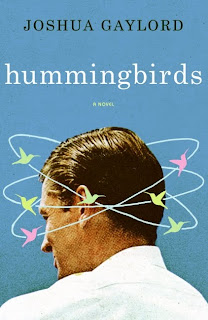 He applied the Page 69 Test to his new novel, The Long Division, and reported the following:
He applied the Page 69 Test to his new novel, The Long Division, and reported the following:The Long Division is an ensemble piece with five protagonists. Their stories converge, as the climax approaches, in increasingly more gut-wrenching ways. There's the Atlanta housecleaner who hits the road with stolen cash (an homage to Psycho's Marion Crane). The mentally tortured college student trying to escape his own accidental crime. The sheriff's deputy desperate to redeem himself and save his reputation. And then there's the sheriff's inhibited, introspective daughter, Erika. It's her viewpoint we get on page 69.Read an excerpt from The Long Division, and learn more about the book and author at the official Derek Nikitas website and blog.
Her father is driving her home in his cruiser. There's some ironic conversation about how safe their town of Weymouth, NY is supposed to be. She doesn’t know there's been a double murder, but dad does, and he's not telling. There's discussion of a planned, bittersweet family trip to Costa Rica, an escape from the wintery darkness that is Western New York in February. The trip is also to be a last hurrah for Erika's mother. She's dying of cancer.
Page 69 is an introspective respite in the midst of all the craziness. It reinforces the doomed, noir-tinged, tone of the book--especially considering the fortuitous mention of the title. The Long Division is a reference to one character's obsession with what mathematics can say about our existence. It's a throwback to the old Chandler euphemism-for-death titles, like The Big Sleep and The Long Goodbye. It describes the families in the book, who have long been broken apart and are now hurtling back together. And, as on Page 69, it describes cancer as a metaphor for the malignancy of fate:
The malignant tumor was in the core of her mother's brain, spanning both hemispheres. It was butterfly shaped and when the wings spread themselves wide enough, like emerging from a chrysalis, Mom would die. The radiation held the wingspread back only temporarily. Invisible waves like raygun blasts through the cancer-cell helixes, but that cellular split was relentless long division. Just after Christmas, Mom's doctors had explained that she would die before her August wedding anniversary, probably months sooner. They advised her to quit her paralegal job, reconnect with her family, go on dream vacations--and all of it quickly.
Check out the complete list of books in the Page 69 Test Series.
--Marshal Zeringue
























